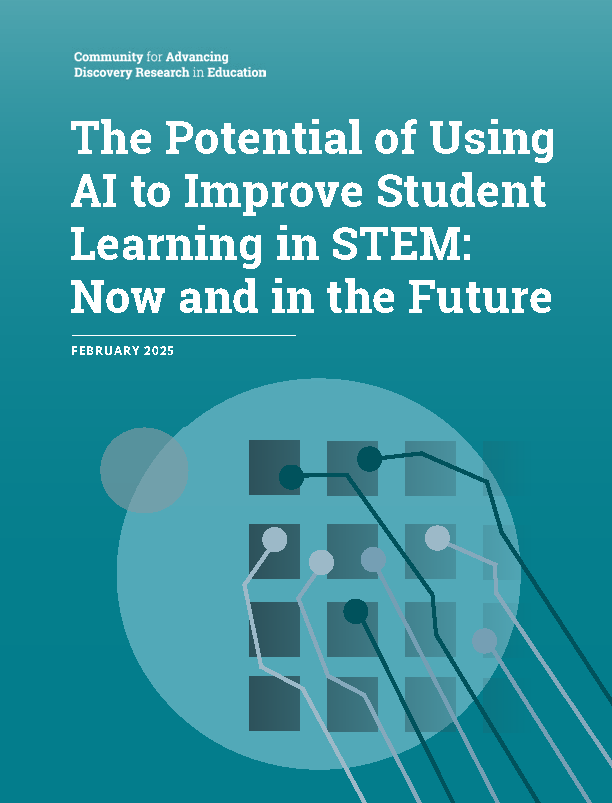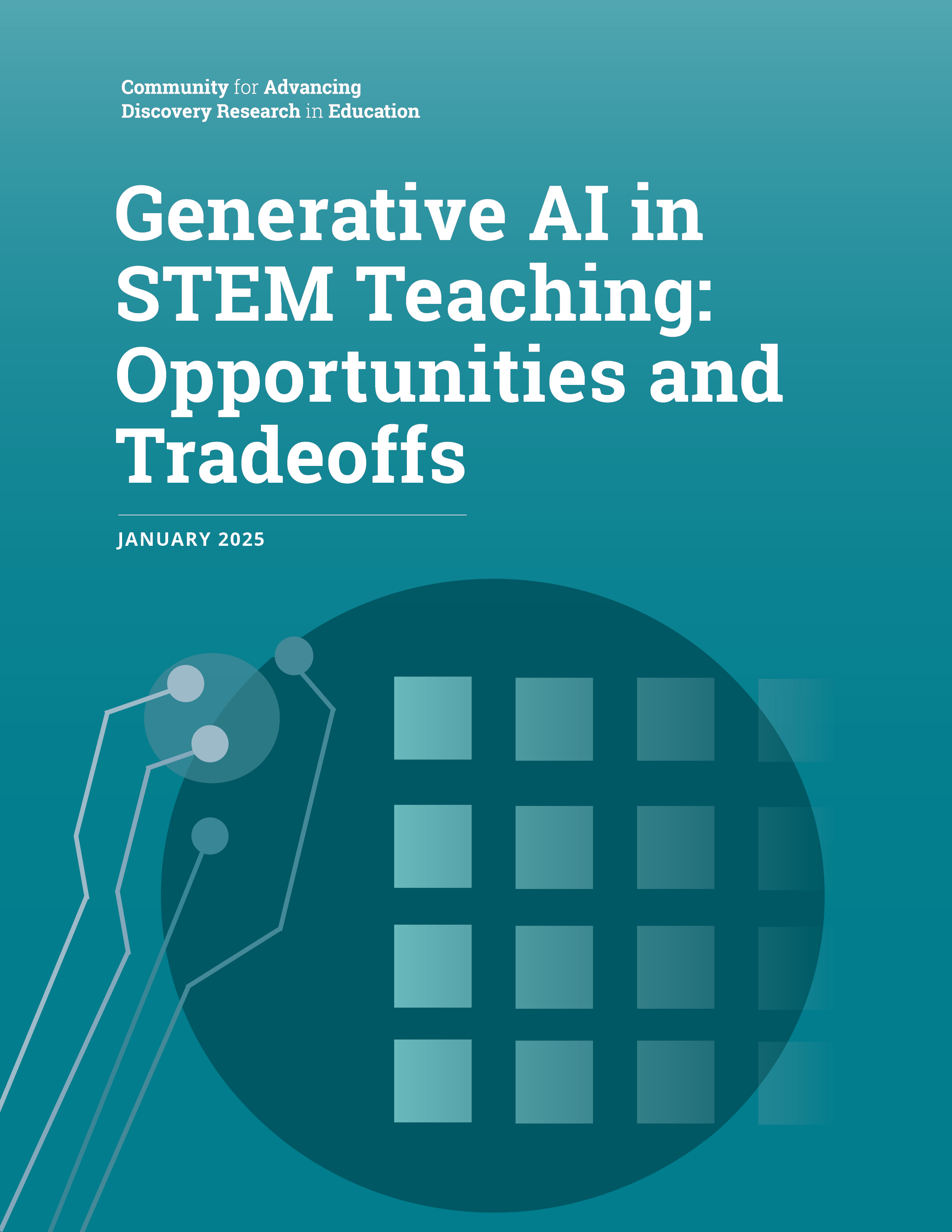In this CADRE brief, the authors Jeremy Price and Shuchi Grover explore the exciting possibilities and critical challenges of generative AI (GenAI) for STEM teaching. They examine how GenAI may shape STEM classrooms in the near future and identify promising trajectories for integrating GenAI into STEM teaching, including the potential for personalized teaching approaches. This brief delves into the current state of GenAI research and development around five dimensions of STEM teaching: Justice, equity, and inclusion; curricular decision-making and lesson planning; pedagogy and instruction; assessing student work and progress; and teacher learning and leadership.
Throughout the brief, the authors reaffirm the essential role of teachers and emphasize the need to include teachers in the design, development, and study of GenAI tools that are intended to benefit STEM education. They also highlight areas of critical concern, urging those involved in research and development to prioritize GenAI efforts in addressing the substantive problems of practice central to STEM teaching with an overarching aim to create more inclusive learning environments.
 In this brief, authors Namsoo Shin, Kevin Haudek, and Joseph Krajcik explore how artificial intelligence (AI) can serve as a transformative learning partner in K–12 STEM education.
In this brief, authors Namsoo Shin, Kevin Haudek, and Joseph Krajcik explore how artificial intelligence (AI) can serve as a transformative learning partner in K–12 STEM education. In this brief, the authors Jeremy Price and Shuchi Grover explore the exciting possibilities and critical challenges of generative AI (GenAI) for STEM teaching.
In this brief, the authors Jeremy Price and Shuchi Grover explore the exciting possibilities and critical challenges of generative AI (GenAI) for STEM teaching.